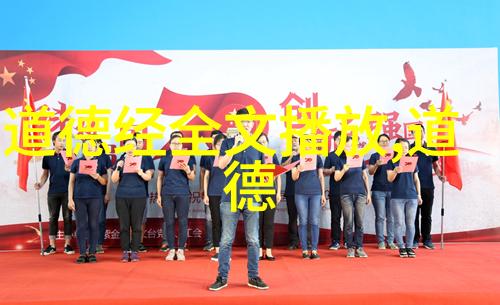道家的代表人物及其思想主张

老子与中国哲学的创造性影响
老子的哲学思想是道家智慧的重要组成部分,他在《道德经》中提出了“无为而治”的治国原则,这种哲学思想对后世产生了深远的影响。老子认为,自然界万物皆由“道”所生成,而人应该顺应自然,不强求,不争斗,这种观点鼓励人们放下欲望,实现内心的平静和谐。

庄子的无常论:否定固定概念
庄子继承并发展了老子的思想,并在他的著作《庄子》中提出了一系列关于宇宙万物变化不定的理论。他认为,世界上的事物都是不断变化的,没有固定的本质,因此我们 shouldn’t be bound by rigid concepts or labels. This idea of constant change and the rejection of fixed categories has had a profound impact on Chinese thought, encouraging individuals to adopt a more flexible and adaptive approach to life.

道家的生活方式:追求简单与自然
Laozi's philosophy emphasizes the importance of living in harmony with nature and adopting a simple way of life. He believed that people should return to their natural state, free from artificial constructs such as social hierarchies and material possessions. This idea has influenced many subsequent philosophical movements in China, including Taoism, Confucianism, and Buddhism.

The concept of Wu Wei: non-action or effortless action
Wu Wei is an important concept in Daoist thought that refers to the effortless action that arises from alignment with the natural order (Dao). According to Laozi, when one acts without forcing or striving against the natural flow of events, they can achieve greater effectiveness than through forced effort. This idea has been influential in shaping Chinese approaches to governance, business management, and personal development.

The role of Qi: vital energy in Daoist thought
In Daoist philosophy, Qi (vital energy) is seen as an essential force that permeates all things. It is believed that maintaining balance within oneself requires harmonizing one's internal Qi with external circumstances. Zhuangzi emphasized the importance of cultivating inner strength through meditation and introspection while also aligning oneself with nature's rhythms.
Daoist spiritual practices for self-cultivation
To cultivate inner strength and align oneself with Dao’s principles requires various spiritual practices such as meditation (zazen), breath control (qi gong), alchemy (neidan), yoga-like exercises called "internal alchemy," etc., which aim at balancing yin-yang energies within ourselves thereby achieving enlightenment.
Through these six points we have explored some key aspects related to Lao Tzu & Zhuang Zhou's ideas about how society should be governed based on their interpretations about “natural laws”, what constitutes knowledge according to them; whether it was acquired knowledge or innate wisdom; how they looked at human behavior; what sort-of actions were considered virtuous; where did they think our true essence lay? In conclusion we see both philosophers contributed significantly towards shaping modern-day societal norms around us - particularly those associated with simplicity-based lifestyle choices like minimalism which are increasingly popular worldwide today due largely because these teachings resonate deeply across cultures & generations alike!


